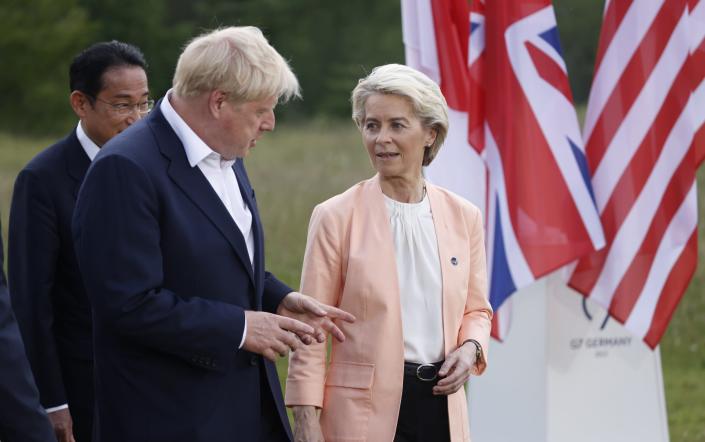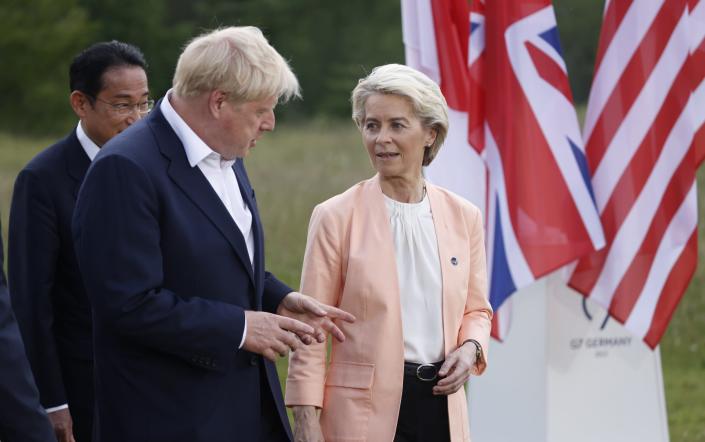
Brussels is taking advantage of Boris Johnson’s leadership woes by refusing Brexit concessions, sources say.
MPs are set to vote on Monday on controversial new laws to give ministers powers to override parts of the post-Brexit deal on Northern Ireland.
It is part of an attempt to wrest concessions out of the EU, but Brussels is reluctant to make further offers beyond their October proposals, which they have accused the UK of ignoring in the months since they were put on the table.
The UK has demanded EU capitals give negotiator Maros Sefcovic a fresh mandate to make further concessions and effectively rewrite the treaty, which the EU has repeatedly ruled out.
‘EU is far more likely to watch on in silence’
But the Telegraph understands there is little appetite for major concessions, in part because of Mr Johnson’s shaky grasp on his leadership.
“The EU is far more likely to watch on in silence as the UK engages in what Brussels would see as another round of negotiating with itself,” said a source.
EU capitals have also been enraged by the threat to unilaterally rip up the Protocol and do not want to be seen to reward such a breach of trust with a fresh mandate.
The UK Goverment has argued that the measures to remove checks on goods and animal and plant products travelling from Great Britain to Northern Ireland are necessary to safeguard the Good Friday Agreement.
Unionist opposition to the checks, which they perceive as driving a wedge down the Irish Sea, has seen the Democratic Unionist Party (DUP) refuse to return to the powersharing executive, leaving the region without a functioning government.
‘We are obliged to act’
The UK has insisted that its unilateral approach is the only option left to resolve the issues “baked in” to the Protocol if the EU maintains its refusal fundamentally to rewrite the terms of the deal.
Liz Truss, the Foreign Secretary, said: “Our overriding priority is protecting the Belfast (Good Friday) Agreement, the bedrock of peace and stability in Northern Ireland – as it stands the Protocol is undermining this delicate balance.
“This legislation will fix the problems the Protocol has created, ensuring that goods can flow freely within the UK, while avoiding a hard border and safeguarding the EU Single Market.
“A negotiated solution has been and remains our preference, but the EU continues to rule out changing the Protocol itself – even though it is patently causing serious problems in Northern Ireland – which therefore means we are obliged to act.”




